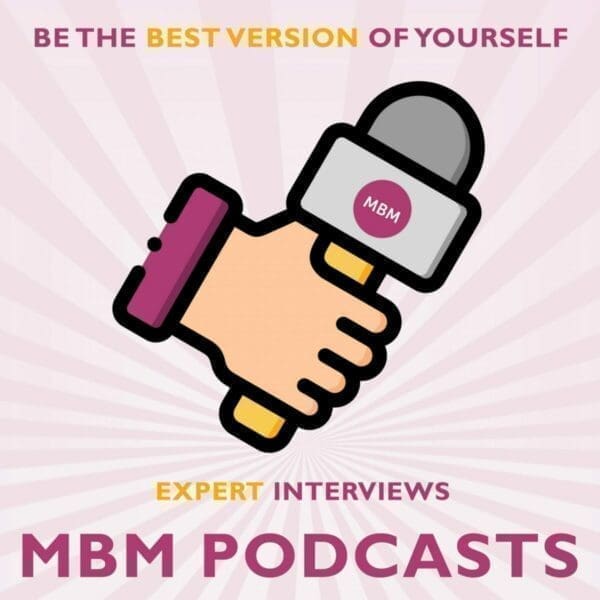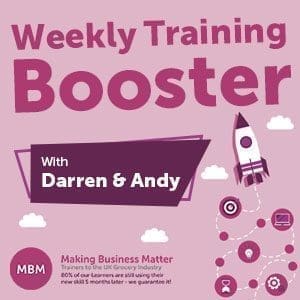Podcast: Play in new window | Download
E7 – You Do Your Best Work Under Pressure? You’re a Tight Deadline Junkie
Do you leave everything to the last minute? Do you find yourself burning the midnight oil time after and time to meet deadlines? Yet, somehow, every time you pull of a masterstroke of genius and deliver. You deliver, not just on time, but you deliver your best work. You might just be one of the many tight deadline junkies. Listen to this podcast to learn more.
Read the Tight Deadline Podcast Transcript:
“Deadlines are a fundamental part of working in business. Are you one of those people like a baseball player? Running for the home run, and you slide in on the last base just as the umpire says, “Yep, you’re home”? My name is Darren and you’re at the home of Sticky Learning MBM, trainers to the UK grocery industry, and experts in making learning stick.”
“Today I’d like to talk to you about tight deadlines. A lot of people are one of those baseball players that just slide in and get the home run, and you might say, “What’s wrong with that?” I’d say nothing, except the stress that it causes. Then people will say to me, “Ah, but I do my best work under pressure”. I’d say to them, “Research disagrees”. In fact, when we’re stressed scientists have proved that our IQ drops to that of a teenager. So when the adrenaline is running, when the cortisol is going around our body, what’s happening is we’re getting ready for fight or flight for the sabre-toothed tiger, but of course, they don’t exist anymore.”
Leaving Things to the Last Minute
What happens at work is when we really need to be our best, make our best decisions, what’s happening in our IQ has dropped. So, you think that you do your best work under pressure, it’s not true. What happens is you get very stressed under pressure and you seem to get a lot done, but let’s look at that a whole different way. A lot of people slide in, getting their deadlines done just on time. A bit like when they go for a train and they’re almost proud to jump on the train having run across the platform as the doors are bleeping. “I made it,” and yes you did, but let’s look at the stress that that caused, and was it really worth it?
“There is an alternative, and it’s not going to be an alternative that you’ll want to embrace, because part of you really likes to the rollercoaster ride of that adrenaline rush. Here’s my challenge. You’ve got a manager who is erratic, disorganized. Often sliding in at last base just to get the deadlines done. Whilst that’s quite exciting, is that really the person that you would want to work for? Would you prefer someone that’s more measured? That knows what they’re trying to achieve? Let’s call it strategic thinking, and has a really good understanding of what the plan looks like for the next 12 months or the next few days, but isn’t trying to hit deadlines just as they happen or passed.”

The Last-Minute Multiply Effect
“That’s exciting, but the stress is huge, and multiply that as a cascade from top to bottom in a company. The guy at the top is working on a last-minute tight deadline. Because he couldn’t think further ahead than a few weeks. That cascades to the next level down. The next level down. And by the time it gets to middle management or below they’re running around like headless chickens. Stressed, making decisions at last minute on something that’s probably pretty important for that company. This would not be the image I suggest you want to portray.”
Why Do People Just Hit or Just Miss Their Deadlines?
“So, let’s look at why. Why do people just hit or just miss their deadlines? Why not turn in a report a few days before? Well, the reason is they don’t trust themselves. Let me say that again. The reason is, they don’t trust themselves because let’s imagine a scenario. You’ve got to write a presentation for a customer in two weeks time, Thursday by 5:00. The meeting happens on Friday at 9:00 AM. Now, you’ve had this for a couple of weeks and you’re very busy. You’re working on emails, and voicemails, and meetings. And all those other things that you’ve got to do. So, you put it off and put it off.”
“Then what happens is you get to Thursday, you know this thing has going to be done, and you want to work on it but you’ve been taken off to this meeting, or that meeting or this sudden idea has come in that you’ve got to work on, or this project. So, you stay late on Thursday. You’ve missed your own tight deadline but you’ll stay late, and now you’re working on your own time. You’ve had a really long day, probably a nine, 10 hour day, and what’s happening is you’re trying to do your very best work when you’re most tired. When you have the least energy. That can’t be good. It’s an important customer meeting, yet you’re not giving it the energy that you should because you were busy.”
A Hard Deadline Prevents Tinkering
“Now, the reason you do that, you probably have a late-night or pull an all-nighter into Friday morning, is because if you had started that piece of work, which let’s say took six hours, if you had started it on the Monday previous you would have finished the piece of work six hours later.”
“Here’s what happens next. You start to tinker. You start to play with the font, you start to look at the images, you start to have some great ideas about other things that you could do to make it really, really powerful, and they’re great. That is the reason why you don’t trust yourself to do it beforehand, and almost subconsciously your mind has worked out that if you do start it Thursday at 7:00 PM and you pull an all-nighter, you’re constrained by the deadline of the meeting the next day. So, you can’t tinker with it. The tight deadline is a hard deadline.”
What If You Could Start It Before?
“What about if you could start it before? If you could trust yourself to only work the six hours or, let’s say the seventh hour, the last hour being something really fabulous because you’ve got the time. What you would end up with is a perception by others that you’re organized, you know what you’re doing, you’re not a stress head.”
“A lot less stress for you. Maybe you just added that little something extra to that presentation too. Because you had a little bit more time. Not playing with the font or the image because they’re not overly important but there’s one idea, maybe this roleplay that you did with another colleague, to make sure that your messages came across. Because presenting shouldn’t just be about the slides, it should be about how you present, what body language you use, what tone you use. Anticipating the questions is more important than just the content.”
There’s a Better Way to Do It
“So, moving from being LastMinute.com because it’s very stressful and you are perceived to be disorganized and not really know what’s going on, yet you’re sliding in on the home run. Feels great. I’m suggesting that there’s a better way to do it, and that is to trust yourself. To trust yourself and become aware that if there is a deadline, you’ll start the piece of work way before the deadline, and you will commit to yourself not to tinker with it but only to work on really great ideas that help dramatically improve, in this case, the presentation.”
“If you do that, you will find you start pieces of work earlier, you can get more done, you’re more productive because you’re using a higher IQ. It’s less stressful, and you will rise up the ranks quicker. Because you are perceived to be someone who gets things done calmly, organized, and with an edge that makes your presentations in this case even more effective.”
Final Thoughts
“So, this is me leaving you with a challenge. Don’t be a stress head. Don’t slide in like the exciting baseball player because you like the rollercoaster. Instead, do what we encourage you to do, which is a term called get the hares running. Get the hares running is about, “I’ve got a presentation to do in two weeks. I need to get some data. That’s the bit that’s going to take the most time, so I’m going to get the hare running. Just like the hare at a greyhound race. And I’m going to ask Bob to get me the data for three days time”. That way you can begin the presentation with the data in three days time.”
“Give yourself a deadline of, “I’m going to do it all of this day, and then I will stop because I haven’t had any other great ideas, and the font is fine, and the images are great.” Then leave it alone. Trust yourself that you can leave it alone. Then move on with another piece of work. Knowing that piece of work is ready to go when you pick it up on Friday. So, get the hares running and don’t be LastMinute.com. Thank you.”




